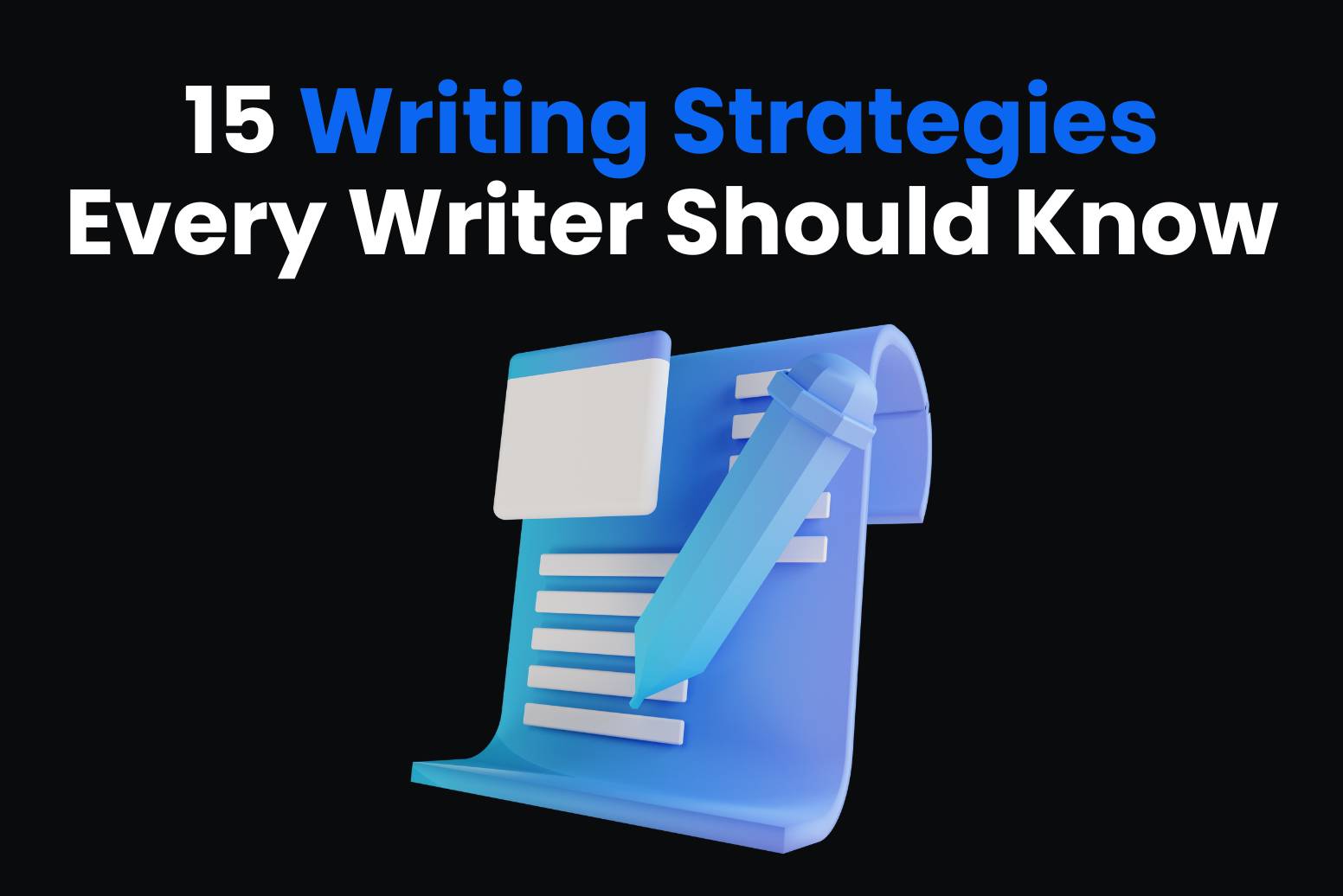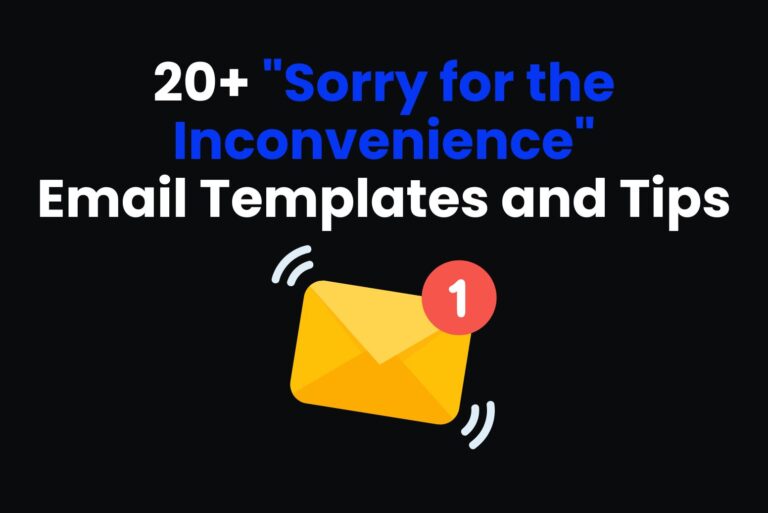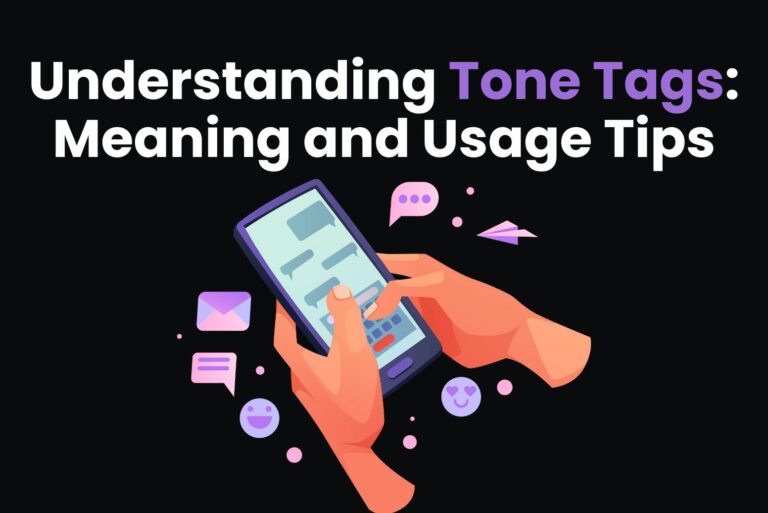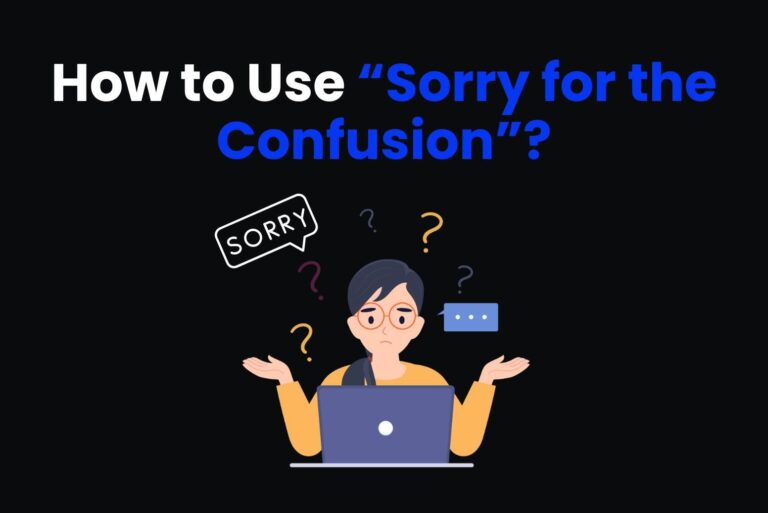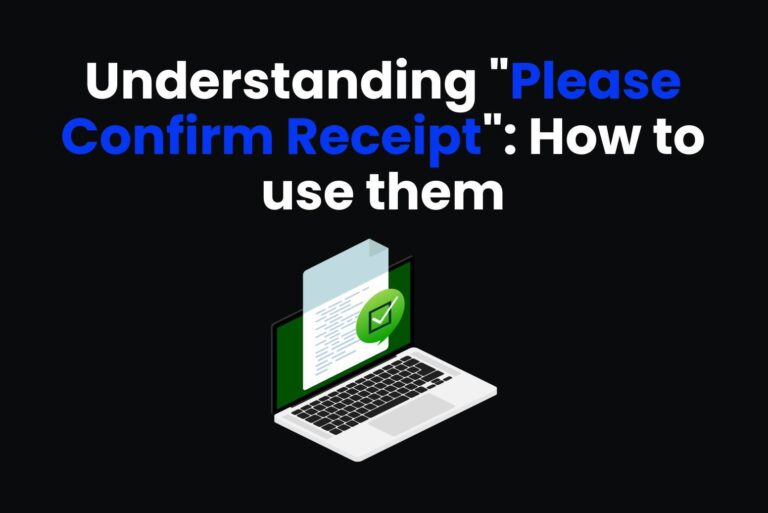15 Writing Strategies Every Writer Should Know
Looking to engage more readers? These simple but winning writing strategies will make your content more effective.

Each day, millions of publications flood the internet, not to mention press releases, academic papers, and so many more. To stand out in this vast sea of content, your writing needs to grab attention.
Successful writers understand that mastering their craft takes practice and dedication. They also utilize specific strategies to improve the accuracy and effectiveness of their writing. For that, here’s an overview of our 15 writing strategies to become a much better writer than the average content creator.
The importance of writing strategies in (good) content creation
Of course, we start with the world of digital marketing, where having a smart strategy is key, and at its heart is the creation of engaging content.
Keep in mind that with quality content writing, we aim to achieve two main things:
- Make your content more relevant and actually useful, which is crucial these days.
- Improve search engine rankings with SEO to get more people visiting your website.
- Get more people to take action on your content, such as buying something or signing up for a newsletter.
All of these goals are certainly important, but how can you come up with a useful strategy that fits into your specific content writing?
Creating strategic content involves having a clear plan and purpose. It’s about knowing what you want to achieve and how to make it happen.
This means understanding your audience, predicting their reactions, and guiding them towards the actions you want them to take after reading. It does not matter whether you are writing a blog or an academic essay: this always applies!
In the same way, every blog post should have a clear purpose. This foresight is what makes content strategy effective.
Enhance your writing skills with these 15 strategies for success
In content marketing, writing strategies often aim to persuade.
The goal is to present information in such a way that convinces users that it’s valuable, offering something they simply can’t resist—like a great deal, a free digital resource, or an exclusive invitation.
In exchange, you’ll attract traffic based on what you offer and how you present it. It may sound simple, but it’s challenging to execute.
However, don’t worry too much about it; there are numerous techniques available to help you succeed. Here, we’ll share our top 15 writing strategies.

1. Structure your content
Structuring your content helps you save a lot of time.
What you need to do is to gather accurate information on a particular topic and present it visually for the user, in an easily understandable way.
To achieve this, it’s important to focus on the keyword and related long-tail keywords. This involves thorough keyword research to determine suitable titles for your text.
Ask yourself the question: what is my ideal reader writing on Google to find me? Answer that!
By doing so, you can organize the information and content before you even start writing, ensuring a structured approach.
This writing strategy is popular among copywriters because it makes the task easier, especially when dealing with unfamiliar subjects and gathering information from different or complex sources.
2. Use lists and bullet points
Using lists and bullet points is a highly appreciated writing technique among online marketing and journalism experts. It’s commonly used nowadays because it allows for concise and specific content on a topic, serving as a summary or synthesis.
This approach is practical and attractive to users because:
- It sums up similar information on a specific topic
- Makes it easy for them to find what they’re looking for within the content
- Keeps up the interest!
You can even take this post as an example as we’re compiling a list of the 15 best writing strategies each having its heading. If you want to do something similar, just change the number and the points you’re summarizing.
3. Pick truly relevant topics
Every day, countless articles flood the internet. You can’t afford to be generic and hope for attention. To attract visitors, your content must be captivating.
Essentially, you need a hook that sets your content apart from the rest.
This could be a personal anecdote, a controversial topic, or simply offering top-notch quality content. It all hinges on your target audience.
To put it simply: try to answer the user’s search intent.
4. Keep an eye on your style
To enhance your writing skills, use spell checkers to proofread your sentences.
Nowadays, tools like Grammarly, Quillbot, or LanguageTool are available for this purpose. These platforms are designed to ensure your content is well-written, crucial for reaching broader audiences and boosting your credibility.
5. Write an attention-grabbing title
Users typically spend only a few seconds reading an article before moving on. That’s why the title and introduction are crucial.
You can consider using artificial intelligence tools for this purpose. And we recommend you Arvin, which is powered by GPT-4 and enables quick writing, translation, and reading.
While writing an entire text with artificial intelligence isn’t advised due to ethical concerns and the potential for generating low-quality content, it’s great to use it as a writing tool. It can help with grammar checking, generating attention-grabbing titles, and providing inspiration.

6. Use key phrases repeatedly
Skilled writers often show their talent by using a wide range of words and expressing ideas in different ways. With the use of synonyms, writers add depth and interest, making sure the text stays exciting and doesn’t get boring.
This technique not only makes their writing easier to read but also shows how well they can use language to keep people hooked. Selecting the right words allows writers to evoke different emotions, settings, and details, making someone more invested in the narrative. This is especially handy when you’re marketing a product that relies on emotions or experiences.
Basically, using synonyms well is a sign of good writers, helping them write engaging stories that connect with readers in many ways.
7. Focus on your audience
This goes hand in hand with point 3. If you choose an interesting content, you have half the work done, but keep in mind that if you don’t target the right audience, no one will read it.
Take some time to identify who you want to reach through your writing. Your audience’s opinion of your subject matters, as well as their interests, age, background, place of residence and level of education, will influence what they think and feel about what you communicate to them.
8. Keep it simple and straightforward
A common mistake among inexperienced writers is using overly formal language or trying to impress with big words instead of focusing on clarity.
Aim for simplicity.
Make clarity your writing strategy, and use brevity to effectively convey your message. Each word and sentence should serve a purpose in your writing.
While it’s useful to let your ideas go freely, revising is key. Trim unnecessary content, cut repetition and redundancy to ensure every word contributes meaningfully to your text’s overall purpose.
9. Make your content trustworthy
To get users to share your content, they need to trust it.
And while the page design plays a key role in how much users trust your content, your copywriting is also very important.
Here are two tips for making your content more reliable:
- Do your research and referencing to show that you know what you’re talking about. For example, whenever if you write a guide, use a lot of data and citations.
- Write about what you know best. Why? Expert-written content is hard to come by. While many opt for freelancers, there’s something special about content crafted by true experts in the field.
10. Limit your use of adverbs and adjectives
Both are used to describe nouns and verbs, but overusing them can distract from your main point.
While they can be helpful at times, too many qualifiers can muddy your message.
When proofreading, consider whether your argument could be clearer without them.
11. Start off clearly
In the opening sentences and paragraphs, writers have the chance to capture the reader’s attention and keep them engaged.
A strong start encourages readers to keep reading.
It’s often a good idea to write the body and conclusion first, then go back to craft or revise the introduction. Once you know the main points and how the piece ends, it’s easier to figure out how to begin or create an interesting introduction to highlight the key information.

12. Add literary resources into your writing
Writers use various tools to make their writing stand out. Techniques like similes, metaphors, rhyme, alliteration and word order changes can enhance your style and grab your reader’s attention.
We’ll show you how to use these techniques in your writing:
- Similes and metaphors compare two things that are usually different.
- Rhyme and repetition make your writing catchy and memorable.
- Alliteration and assonance create pleasing sounds.
- Changing word order add suspense or highlight important points, giving your story more depth.
13. Proofread and edit your text to finish things up
After suggesting you to check your spelling, the next step is to proofread. This helps you find any mistakes you might have missed before.
Reading, editing and proofreading are different steps:
- First, read the text. Make sure that the main idea is clear and that the text is accurate. This is about taking an overall view of the text and making changes that will improve it.
- Next step is to edit. Editing involves analyzing each sentence for clarity, efficiency, and grammar. Focus on fixing punctuation errors and misspellings.
- Lastly, proofread. This is a final check before publishing, where you look for errors missed during editing. It’s also a chance to ensure conformity with any specific style guide.
14. Choose powerful verbs and words when you write
Verbs are the actions in your writing, so they’re crucial. Clear and powerful verbs make your writing more effective. For that, when you write, consider which verbs will paint a clear picture for your readers.
Think about the contrast between “She is walking really fast” and “She is sprinting.” The second one gives a clearer image of a fast movement. Likewise, “He ate quickly” is less impactful than “He devoured,” which hints at a strong hunger or eagerness.
15. Read more and more!
The final strategy on our list isn’t about writing at all—it’s about reading.
Reading is arguably the most effective way to improve your writing skills. By reading regularly, you’ll expand your vocabulary, encounter examples of strong writing, and reinforce your understanding of spelling, grammar, punctuation, and common writing techniques.
Developing a reading habit can also help you identify effective writing styles, discover topics you’re passionate about, and learn how to connect with your audience more effectively.
How to become a better writer (and come up with even better content)?
Skilled writers understand that writing is a journey, not a race. It requires dedication and practice to hone your skills.
Make writing a daily habit, concentrate on different sections of your work, and aim to publish regularly.
When you apply writing strategies consistently, you’ll become a better writer. And with powerful tools like Arvin, an AI browser extension designed to assist with writing, you have even more support at your fingertips. What are you waiting to try it?

FAQ:
How should I organize my writing?
The best way to organize your writing depends on your purpose and audience. However, a clear introduction, a well-structured body, and a concise conclusion are essential for effective writing.
Why is revising important in writing?
The revision process is crucial as it allows you to refine your ideas, improve clarity, and ensure your writing has impact. It’s where you transform your initial drafts into polished pieces.
Can writing strategies enhance my writing?
Absolutely! Employing writing strategies can significantly improve your writing by adding structure, engagement, and persuasion. They provide a framework that streamlines the writing process, making it more efficient and effective.
